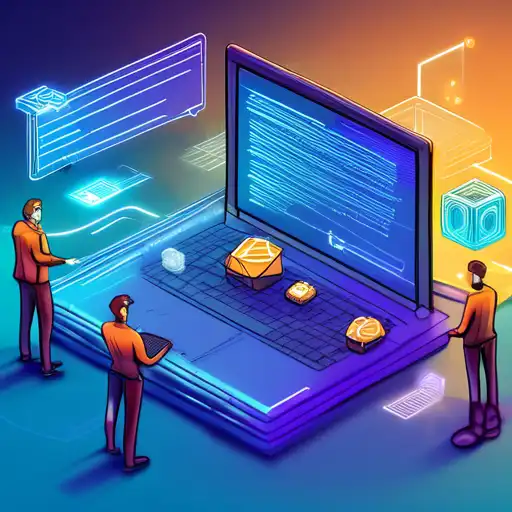Introduction to Smart Contracts
Smart contracts represent a pivotal innovation in blockchain technology, automating agreements without the need for intermediaries. These digital contracts execute transactions automatically when predetermined conditions are met, ensuring trust and efficiency in decentralized environments.
How Smart Contracts Work
At their core, smart contracts are self-executing contracts with the terms of the agreement directly written into code. They run on blockchain networks, which means they are distributed, transparent, and immutable. This ensures that once a contract is deployed, it cannot be altered, providing a high level of security and trust.
Benefits of Smart Contracts
- Autonomy: Eliminates the need for intermediaries, giving full control to the parties involved.
- Trust: Encrypted records of transactions are shared across participants, ensuring transparency.
- Backup: Being on the blockchain, every detail is duplicated many times over, ensuring against data loss.
- Safety: Cryptography keeps documents safe from infiltration.
- Speed: Automating tasks saves hours compared to traditional business processes.
Applications of Smart Contracts
Smart contracts find applications across various sectors, including finance, real estate, healthcare, and more. They are instrumental in creating decentralized applications (DApps) and are a cornerstone of blockchain ecosystems like Ethereum, which was specifically designed to support smart contracts.
Challenges and Considerations
Despite their advantages, smart contracts are not without challenges. Issues such as coding errors, legal recognition, and scalability need to be addressed to fully realize their potential. It's crucial for developers to conduct thorough testing and for legal frameworks to evolve alongside this technology.
Future of Smart Contracts
The future of smart contracts is intertwined with the advancement of blockchain technology. As the technology matures, we can expect wider adoption, more sophisticated applications, and integration with other emerging technologies like AI and IoT, further revolutionizing how we conduct transactions and enforce agreements digitally.
Understanding smart contracts is essential for anyone looking to delve into blockchain technology. Their ability to automate and secure transactions in a trustless environment makes them a key component of the decentralized future. For more insights into blockchain innovations, explore our blockchain innovations section.
